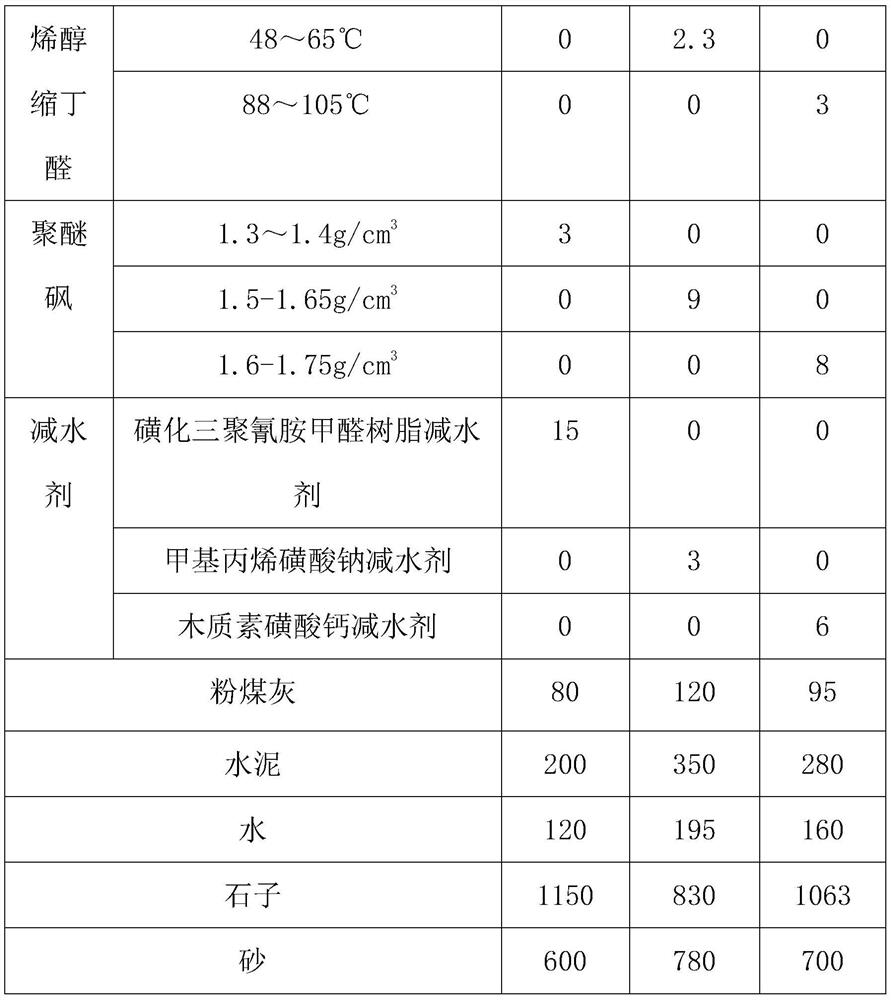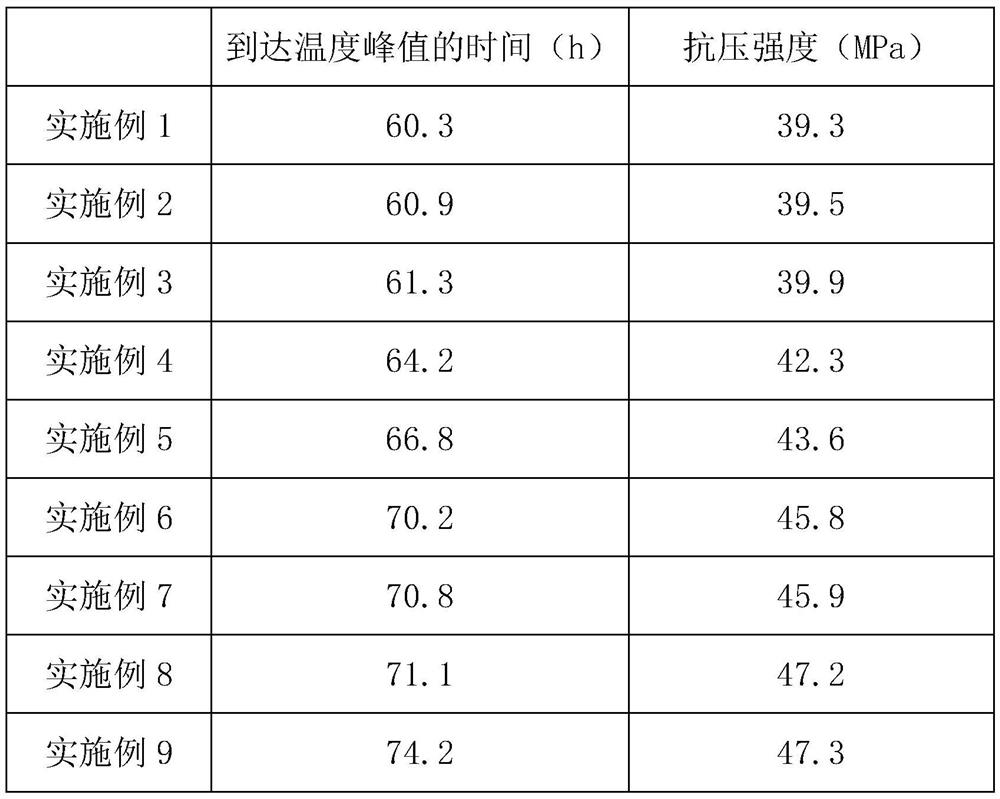Mass low-hydration-heat concrete and preparation method thereof
A low hydration heat, concrete technology, applied in the field of civil engineering, can solve the problems affecting the safety and normal use of concrete structures, multi-temperature cracks, etc. Effect
- Summary
- Abstract
- Description
- Claims
- Application Information
AI Technical Summary
Problems solved by technology
Method used
Image
Examples
Embodiment 1
[0050] A large-volume low-heat-of-hydration concrete prepared by the following steps:
[0051]Step 1: After mixing cement, water, and sulfonated melamine formaldehyde resin water reducer, the rotation speed is 100r / min, stirring for 1.5h, and the first mixture is obtained after mixing evenly;
[0052] Step 2: Add sand, fly ash, and stones to the first mixture at a speed of 130r / min, stir for 1.5h, and mix well to obtain the second mixture;
[0053] Step 3: The temperature of polyvinyl butyral was raised to 84° C., and then added to the second mixture at a rotation speed of 150 r / min, and stirred for 0.5 h, and the third mixture was obtained after uniform mixing.
[0054] Step 4: Heat up the temperature of polyethersulfone to 250° C., then add it to the third mixture at a rotation speed of 120 r / min, and stir for 2.5 hours. After mixing evenly, a large-volume low-heat-of-hydration concrete is obtained.
Embodiment 2
[0056] A large-volume low-heat-of-hydration concrete prepared by the following steps:
[0057] Step 1: After mixing cement, water, and sodium methyl propylene sulfonate superplasticizer, the rotation speed is 100r / min, stirring for 2.5 hours, and the first mixture is obtained after mixing evenly;
[0058] Step 2: Add sand, fly ash, and stones to the first mixture at a speed of 130r / min, stir for 1 hour, and mix well to obtain the second mixture;
[0059] Step 3: The temperature of polyvinyl butyral was raised to 66° C., and then added to the second mixture at a rotation speed of 150 r / min, and stirred for 1 hour, and the third mixture was obtained after uniform mixing.
[0060] Step 4: heat up polyethersulfone to 200°C, then add it to the third mixture at a rotation speed of 120r / min, and stir for 1 hour. After mixing evenly, a large-volume low-heat-of-hydration concrete is obtained.
Embodiment 3
[0062] A large-volume low-heat-of-hydration concrete prepared by the following steps:
[0063] Step 1: After mixing cement, water, and calcium lignosulfonate superplasticizer, rotate at a speed of 100r / min, stir for 2 hours, and mix well to obtain the first mixture;
[0064] Step 2: Add sand, fly ash and stones to the first mixture at a speed of 130r / min, stir for 1.3h, and mix well to obtain the second mixture;
[0065] Step 3: The temperature of polyvinyl butyral was raised to 75°C, and then added to the second mixture at a rotation speed of 150r / min, and stirred for 0.8h, and the third mixture was obtained after uniform mixing.
[0066] Step 4: Heat up the temperature of polyethersulfone to 230°C, then add it to the third mixture at a rotation speed of 120r / min, and stir for 2 hours. After mixing evenly, a large-volume low-heat-of-hydration concrete is obtained.
[0067] Wherein, in the embodiment 1-3, the water reducer adopts one of sulfonated melamine formaldehyde resin ...
PUM
| Property | Measurement | Unit |
|---|---|---|
| Glass transition temperature | aaaaa | aaaaa |
| Chopped length | aaaaa | aaaaa |
| Chopped length | aaaaa | aaaaa |
Abstract
Description
Claims
Application Information
 Login to View More
Login to View More - Generate Ideas
- Intellectual Property
- Life Sciences
- Materials
- Tech Scout
- Unparalleled Data Quality
- Higher Quality Content
- 60% Fewer Hallucinations
Browse by: Latest US Patents, China's latest patents, Technical Efficacy Thesaurus, Application Domain, Technology Topic, Popular Technical Reports.
© 2025 PatSnap. All rights reserved.Legal|Privacy policy|Modern Slavery Act Transparency Statement|Sitemap|About US| Contact US: help@patsnap.com



